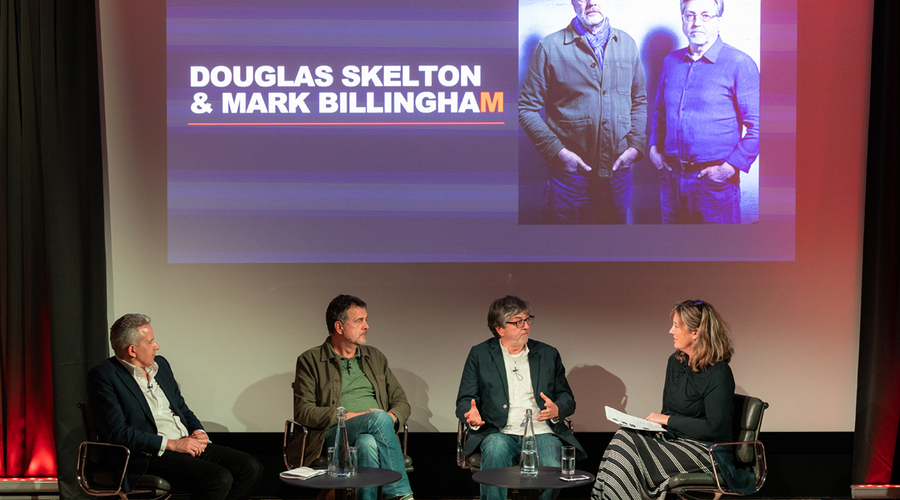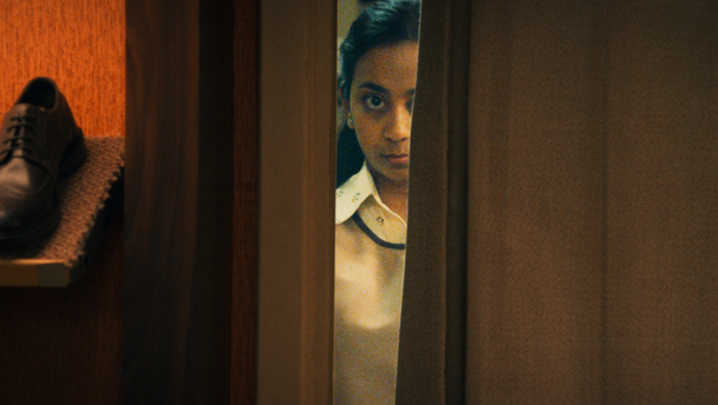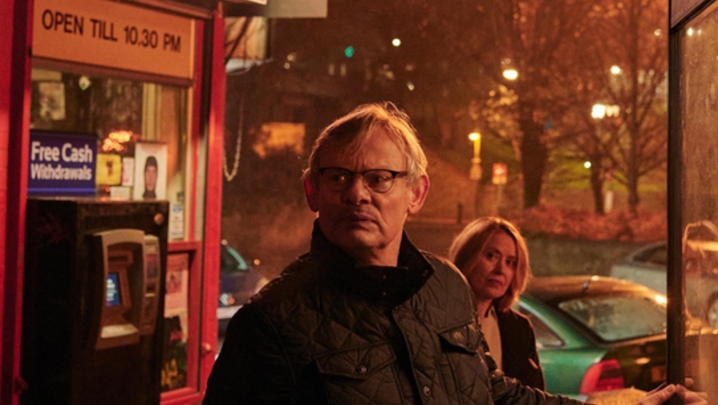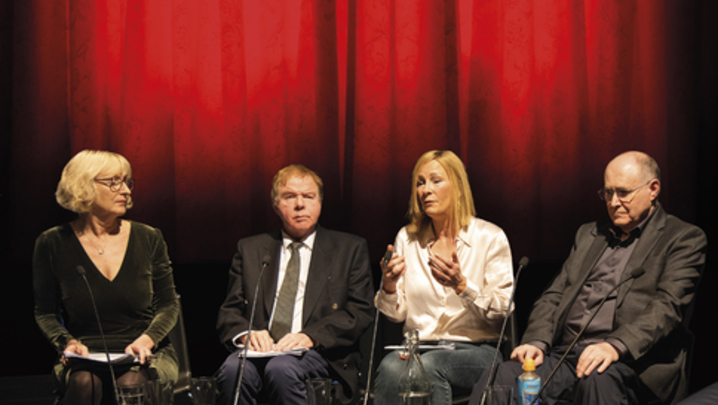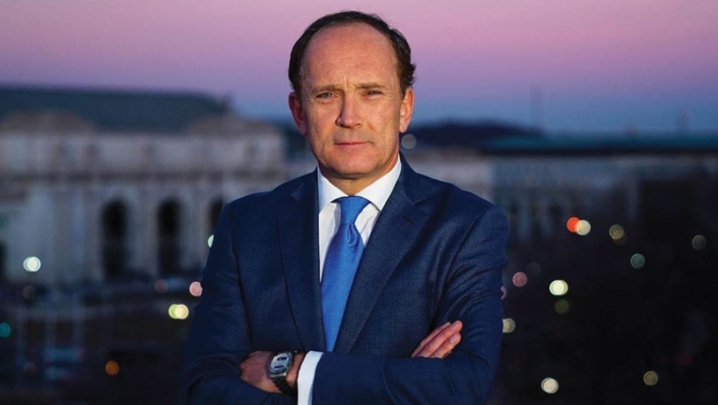Novelists Mark Billingham and Douglas Skelton offer their take on the UK’s most notorious crimes.
At an intimate RTS event in London’s British Library, members gathered to enjoy an illuminating discussion between bestselling crime novelists Mark Billingham and Douglas Skelton and A+E Networks executive Dan Korn. Attendees were also treated to exclusive excerpts from Crime+Investigation’s documentary series Once Upon a True Crime.
Hailed as a fresh approach to true-crime programming, the new four-part show features notorious crimes that shocked the UK: the 1960s Moors murders; the killings committed by Peter Manuel in Glasgow in the 1950s; the so-called “babes in the wood” murders in Brighton in 1986; and the unsolved case of Glasgow’s notorious “ice-cream wars” in the 1980s.
The twist on traditional true-crime shows is that each episode is delivered and presented by a popular writer of crime fiction, who brings their own personality and take on the crimes that have inspired their most famous novels. Billingham, Skelton, Denise Mina and Peter James are the featured bestselling authors.
“True-crime audiences are spoilt for choice at the moment,” said Korn, who is executive producer and vice-president for programming at A+E Networks UK, and commissioned the show from the Glasgow and London-based factual TV production powerhouse IWC Media. “What viewers will get is a unique take, very much an author’s take.”
Korn noted that he had A+E Networks’ Polish team to thank for the Once Upon a True Crime format; it was originally produced with Polish authors talking about the true crimes that inspired their fiction. He said all four British authors had delivered on a promise to “tell viewers about them from a unique place”.
“We are always seeking a new way into crime, we always need to find new angles because there is a risk of things becoming repetitive and sensationalist,” Korn told the chair of the RTS event, the journalist, broadcaster and author Caroline Frost.
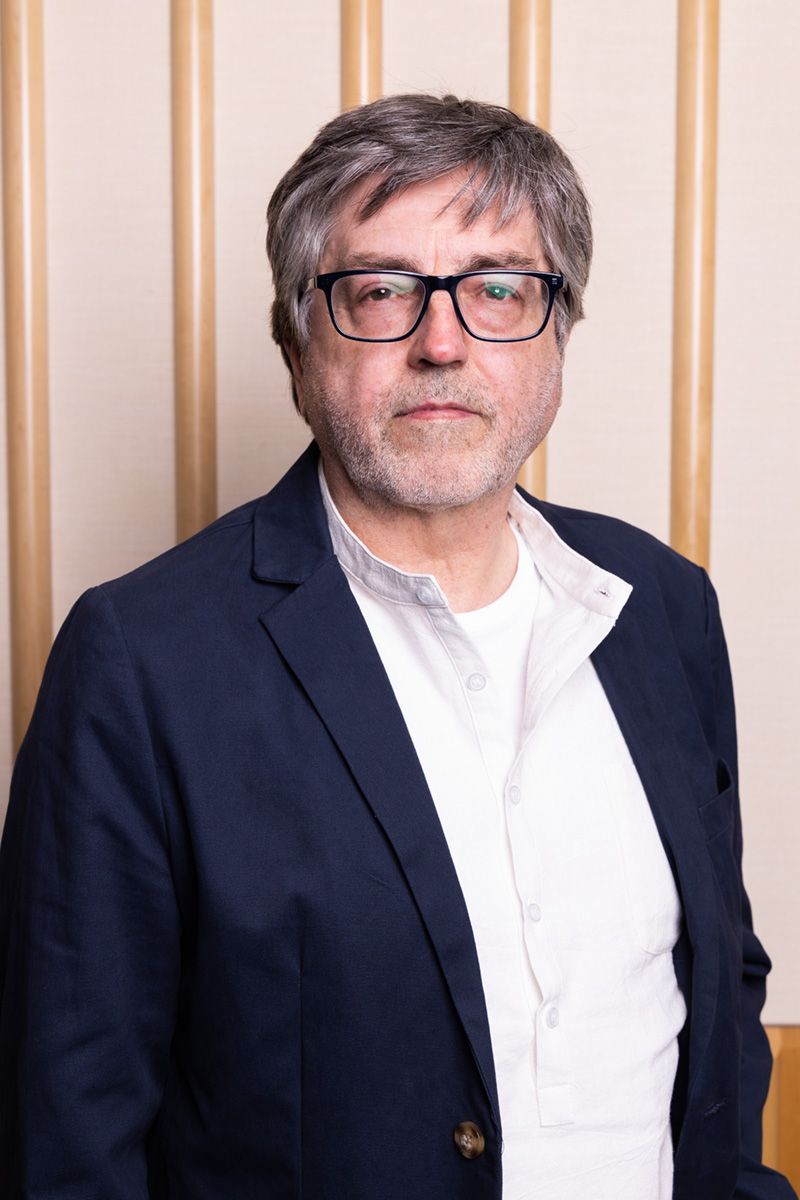
The conversation ranged from why true crime fascinates and horrifies in equal measure to the conviction that, for the past 60 years, crime fiction has been less about whodunnit than why the crime was committed.
Billingham’s episode tackles the enduring mysteries of the grotesque couple Ian Brady and Myra Hindley, and the Yorkshire Moors murders of several children, which helped inspire his bestseller Their Little Secret.
“I wanted to look at what happened after the pair were caught and convicted, rather than just a rehash of their terrible crimes,” said Billingham.
Skelton’s episode examines the infamous 1980s gangland turf war known as the “ice-cream wars”, which terrorised Glasgow’s East End and culminated in the murders of six members of one family in a horrifying arson attack. In 1984, two men were convicted of the murders and sentenced to life while constantly protesting their innocence. After a 20-year battle, their convictions were overturned. No one subsequently has been brought to justice for the murders. The background to the case influenced Skelton’s novel Blood City.
In her film, Mina examines the story of Manuel, who, in 1958, became the second-to-last man to be hanged in Glasgow, after killing at least seven people during a campaign of terror across Lanarkshire between 1956 and 1958. The spree included the murder of Marion Watt, her 16-year-old daughter and Watt’s sister. Manuel’s intriguing relationship with Marion’s husband, William Watt, provides the backdrop for Mina’s novel The Long Drop.
“He [Manuel] was the bogey man,” Skelton told the RTS. “For years afterwards, mothers would say to their children: get to your bed or Peter Manuel will come. He was a serial killer before they called them serial killers.”
Peter James’s film recalls the tragedy of the “babes in the wood” murders. The Brighton-born writer revisits his home city to detail a crime that has stuck with him like no other, and the gruelling, decade-long fight for justice.
James focuses on the killer, Russell Bishop, who originally escaped conviction for the murder of two nine-year-old girls found strangled in woods on the outskirts of Brighton because his girlfriend gave him an alibi.
Korn noted that James got very close to the case and to the investigating police officers and was devastated that they had not been able to bring Bishop to justice, despite knowing he was guilty. It took 10 years before Bishop was convicted.
“There is a hook to crime – they are the best stories, that’s why people come to them,” suggested Korn. “They also provide a gripping social commentary.”
All the episodes contain a revelation or two that surprised the authors and will, no doubt, provide viewers with never-before-known nuggets.
So, how do Billingham and Skelton feel about being a part of the big media circus that still follows these true crimes and feeds people’s appetite for such grisly content?
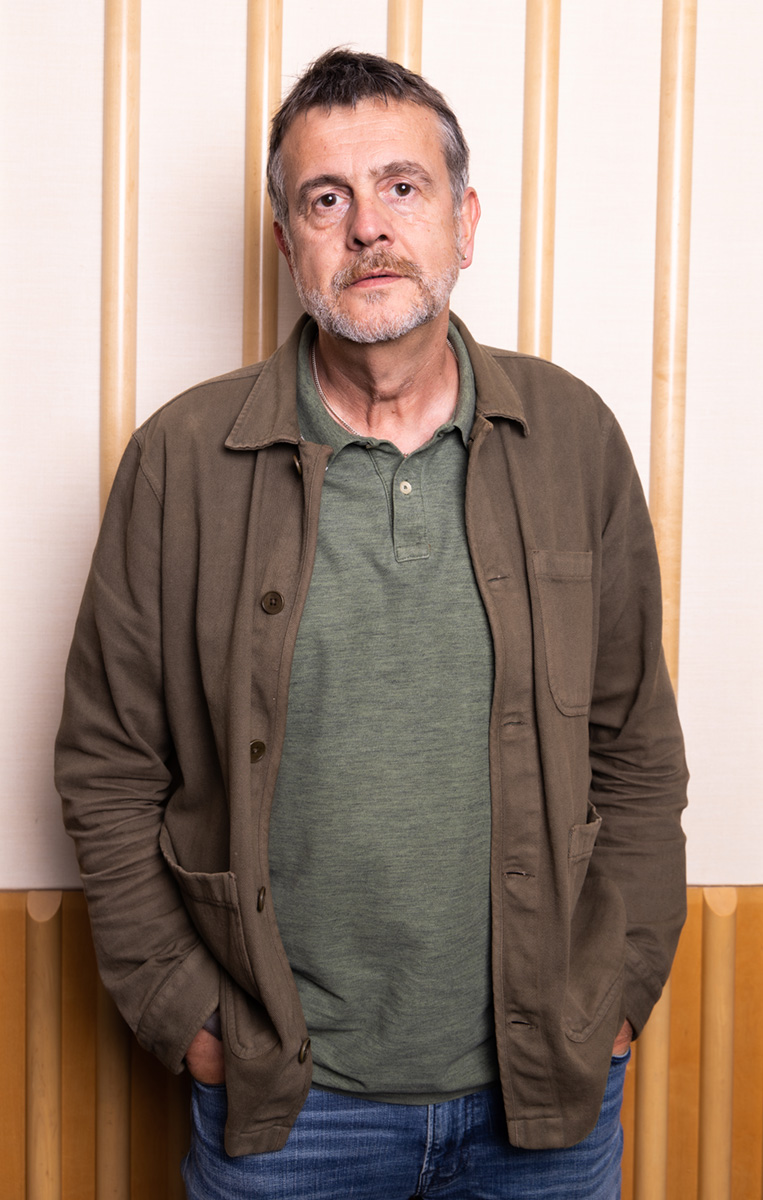
“I certainly say somewhere in my film that they’ve had their moment in the spotlight,” said Billingham. “At the same time, I’m aware that I am now part of that spotlight. So it’s a line you have to walk and you have to use your best judgement.”
For Skelton, it is because he still has questions: “The only thing I know for certain that happened in 1984 was that someone lied. I would like to find out who it was and that’s why I keep hammering away at this idea that the authorities get up off their backsides and look into this case again to try and find out what happened.” What drives men and women to commit dreadful acts is the essential question most crime authors are wrestling with, he said.
“For the past 60-odd years, crime fiction has been about the why-dunnit rather than whodunnit,” Billingham said. “I think it’s something we’re always going to be fascinated by. Always.” After all, losing yourself in a book or disappearing into a documentary is a safe way to encounter crime. “Some people want escapism, some people want something else. There are a whole variety of reasons why people like crime drama and crime fiction,” added Billingham.
While the show was six months in the making, IWC Media was able to move swiftly because each novelist’s unique perspective provided a clear narrative way in to each episode.
Korn said that each film had its own kind of complexity. “A lot of the time, I thought I would love this to run longer, like at 66 minutes for a 90-minute slot, but you do have to compress it and bring it down to time for 45 minutes, which, sometimes, is a shame. With these films, they all had more to give.”
Once Upon a True Crime began airing on Crime+Investigation in the UK on 25 April on pay platforms and is also available on streaming services Amazon Prime Video and Apple TV+.
A good consolidated audience for the show would be around the 200,000 mark, remarked Korn after the event. And, of course, lead to the commissioning of more crime – at least on TV.
Report by Stuart Kemp. The RTS members event ‘Once Upon a True Crime’ was held on 20 April at the British Library, London. It was hosted by journalist, broadcaster and author Caroline Frost and produced by Barbara Pianca, senior communications manager, A+E Networks UK.

